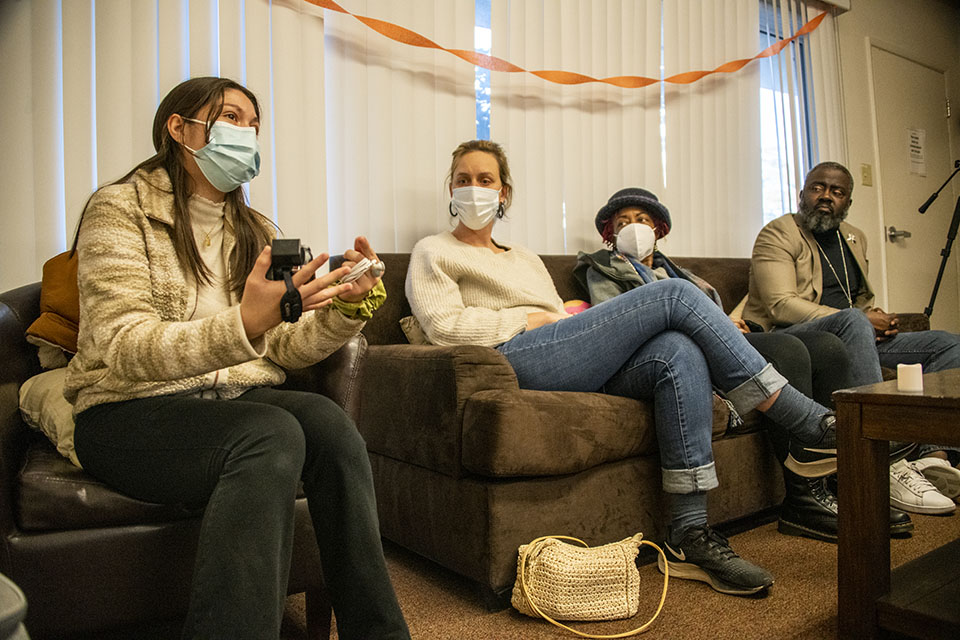‘Stronger by Coming Together’ – Glenn Omatsu House Hosts Solidarity Circle
In response to recent mass shootings in Monterey Park and Half Moon Bay, CSUN students, staff and faculty gathered at the Glenn Omatsu House on Jan. 25 for a solidarity circle, hosted by the campus Asian American Studies Pathways Project.
The Asian American Studies Pathways Project is a program run by students for students. The project provides a variety of resources for students, including academic and mental health support. The solidarity circles hosted by the group provides a safe space for guests and visitors to discuss subjects like mental health and domestic violence in the Asian American, Pacific Islander and Desi-American community. All information shared at solidarity circles are meant to be kept private.
CSUN senior and Pathways Project intern Edel Evangelista opened the January solidarity circle with a speech.
“We are grief stricken and appalled by the mass shooting that happened last Sunday in Monterey Park, California. To think that a festive Lunar New Year celebration in Los Angeles County became another scene of gun violence in this country breaks our hearts,” Evangelista said.
A gunman killed 11 people at the Star Dance Studio in Monterey Park on Jan. 21, the eve of Lunar New Year. The suspected gunman, Huu Can Tran, 72, was found dead of a self-inflicted gunshot wound the following day, about 30 miles away in Torrance, police said.
Just hours later, on Jan. 23, a gunman killed seven people in shootings at two farms in Half Moon Bay, in Northern California. Another person was wounded. Authorities say Chunli Zhao, 66, shot and killed former co-workers and that he has confessed to the crimes.
Solidarity circle participants gathered chairs and sofas into a circle inside the main room of the Glenn Omatsu House, where Asian American Studies clubs, organizations and guest speakers come together for meetings. It also serves as a study center and resource for students.
Evangelista then added how the community can become stronger by coming together.
“It is normal to feel overwhelmed and hopeless in the face of so much senseless death and tragedy. However, we believe that we can be stronger by coming together to mourn, support each other and begin to talk about ways we can strengthen our communities and neighborhoods.”
A number of CSUN counselors, Pathways Project members and student journalists from The Sundial participated in the solidarity circle. Pathways Project student members asked the guests questions about how they felt. About 25 participants shared their thoughts, feelings and even offered additional assistance by informing the group of other CSUN counseling resources available.
The event closed with a moment of silence to honor the lives that were lost.
For more support resources, visit the Department of Asian American Studies, the Asian American Studies Pathways Project or CSUN’s Counseling Services.


 experience
experience